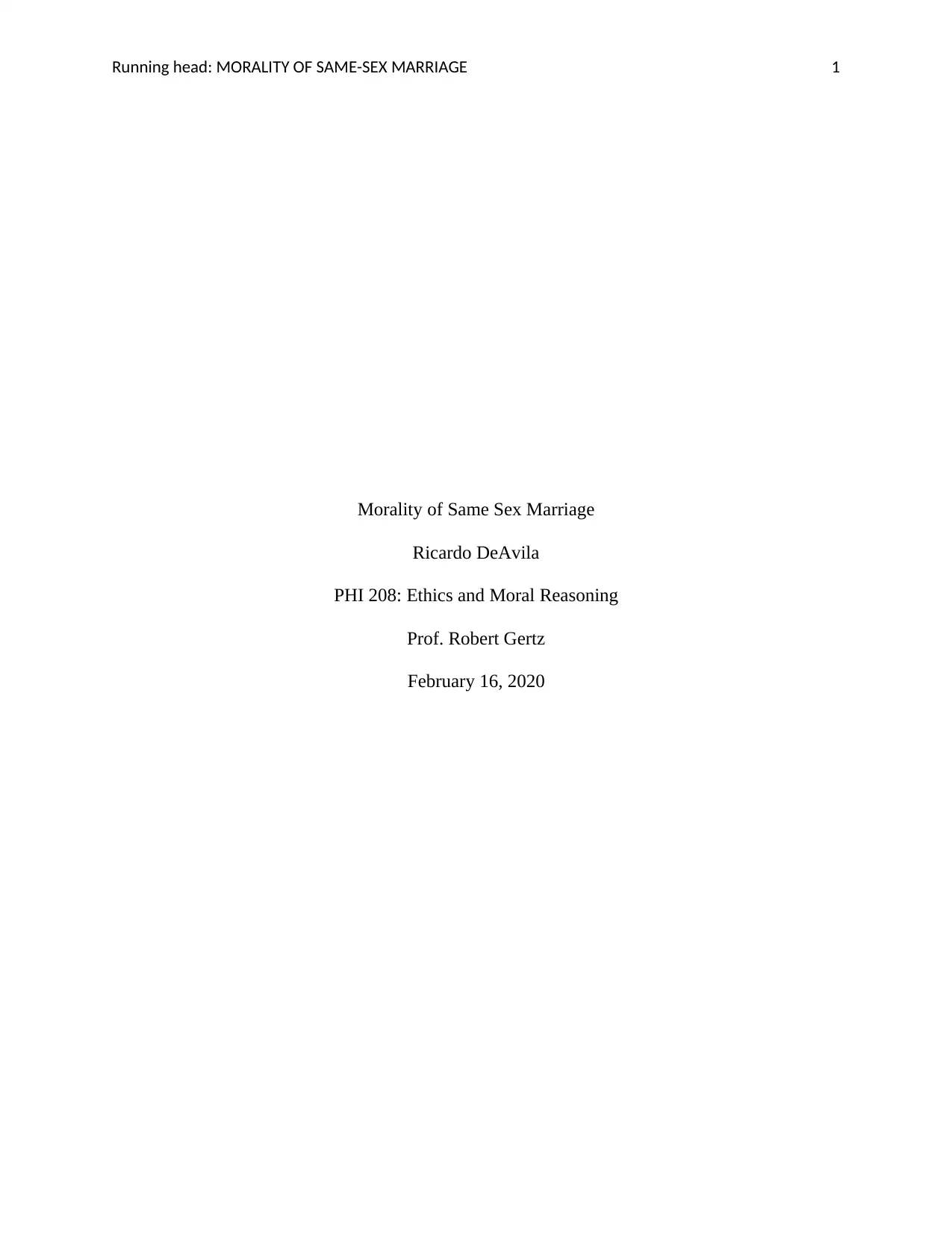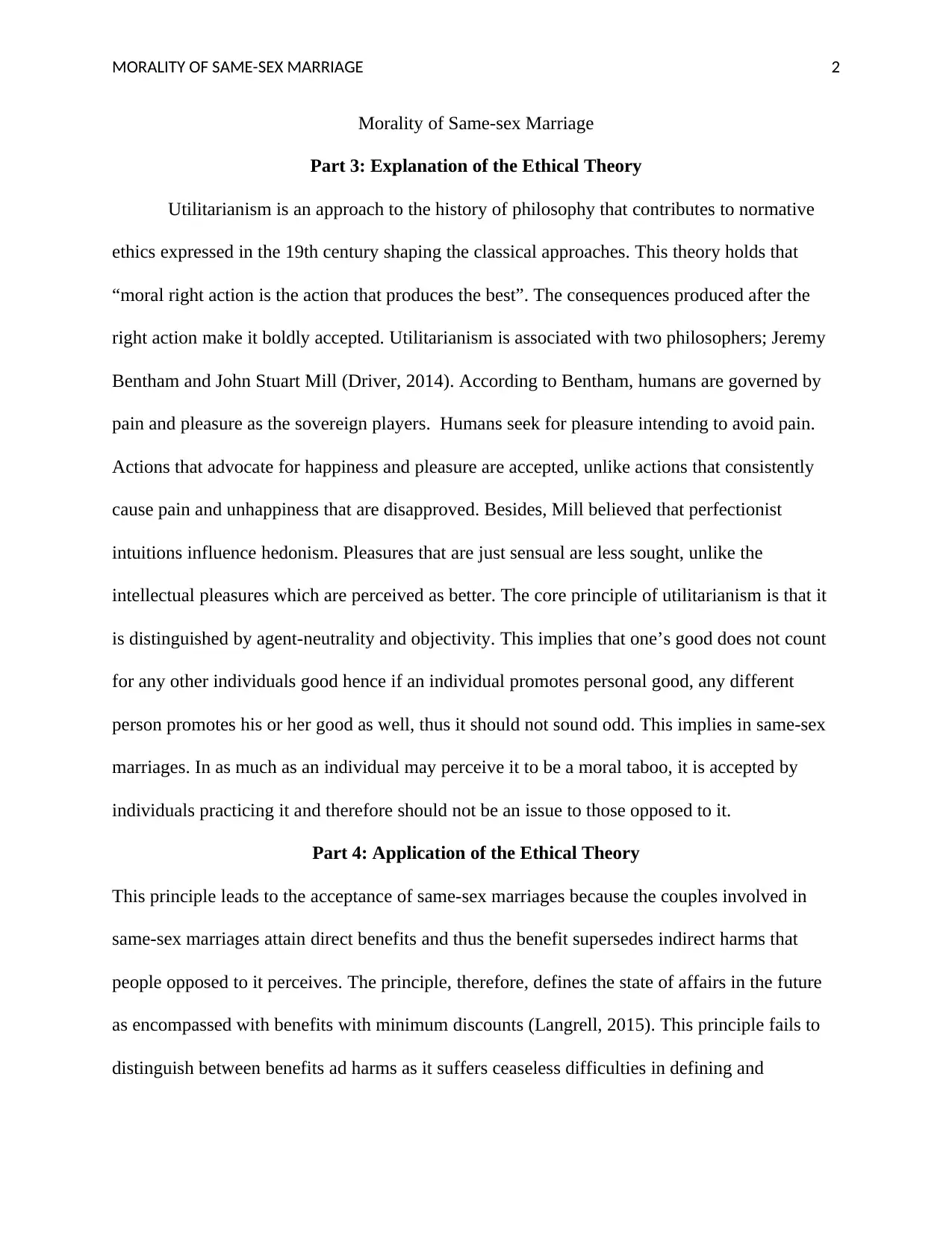PHI 208 Assignment: Morality of Same-Sex Marriage Analysis
VerifiedAdded on 2022/08/20
|4
|450
|16
Homework Assignment
AI Summary
This assignment analyzes the morality of same-sex marriage through the lens of utilitarianism, an ethical theory emphasizing actions that produce the greatest good. The paper begins by framing the ethical question and providing a concise introduction to the topic. It then explains utilitarianism, its core principles, and its historical context with philosophers like Bentham and Mill. The application section explores how utilitarianism can be applied to the issue of same-sex marriage, arguing that the benefits to those in same-sex marriages outweigh the perceived harms by those who oppose it. The paper acknowledges the challenges utilitarianism faces in defining and recognizing benefits and harms, which can lead to difficulties in moral decision-making. The assignment concludes by referencing the sources used in its analysis.
1 out of 4











![[object Object]](/_next/static/media/star-bottom.7253800d.svg)